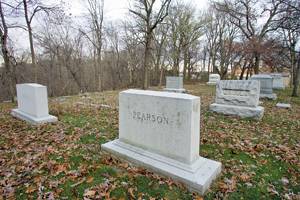FREDERICK: ‘…shall not have died in vain.’

Photo: Manfred Strait/Iowa State Daily
November 10, 2008
It is easy, here in America, to forget about today. Veterans’ Day was born in a train car in France, 90 years ago. Known as Armistice Day at the time, in honor of the armistice that took effect at 11:11 in the morning of Nov. 11, 1918, this is the day we Americans — and, indeed, a large part of the world — set aside to commemorate those who have paid the ultimate price in the name of nation, honor and — perhaps most of all, at the time — their comrades-in-arms.
The great author of our American liberty, Thomas Jefferson, once said, “The tree of Liberty must, from time to time, be watered with the blood of patriots.” If only he had known, sadly, how true those words would be. In just more than 232 years of history, more than 2.4 million Americans have been wounded, killed, captured or gone missing on the front lines for the ideas that Jefferson penned in Philadelphia.
Few high school social studies programs still talk in depth about many of America’s bravest moments. Bunker Hill gets barely a passing note — the average high schooler more than likely has no idea where Lake Erie is, let alone that there was a battle there — and Ypres, the Somme and Belleau Wood sound more like landmarks on another planet than battlefields in France.
The sad fact is that most of America is out of touch with its heritage and history.
With two wars raging right now, however, chances are that most people know a veteran. With these new conflicts, some of our best friends, acquaintances, schoolmates, relatives and neighbors have become veterans. They’re no longer just the stiff old men who march in parades and perform their solemn duty at the gravesides of their comrades. Warfare has a way of reasserting, time and again, what it means to be a veteran and to know a veteran, and, in doing so, reasserting what it means to be an American who owes so much to their self-sacrifice.
This is, after all, known as Veterans’ Day in the United States. Unlike Great Britain’s Remembrance Day, the name of which seems to denote a remembrance of the dead, and unlike Armistice Day, by which we used to know this holiday, Veterans’ Day applies equally to the living and the dead, the young, the old, from any war at any stage of our long history. It is about those rows and rows of white-washed crosses, but it isn’t only about those rows and rows of white-washed crosses.
It is about those we never found, too: The prisoners of war and those missing in action who, as their flag proclaims, are not — and should never — be forgotten.
It is about the widow and widower, the fatherless and motherless children and the war orphan, left to carry on their loved one’s honor in memory, who feel the pain long after the guns have fallen silent.
It is about the old, white-haired man in the Veterans of Foreign Wars cap, standing stiffly in the cold breeze out at the cemetery as the gun shots ring out from the hilltop and the decades-old visions of the indescribable horrors from Normandy, the Ardennes or Nijmegen come rolling back, if only for an instant.
It is about the young man in the hospital, learning to walk without one of his legs but lucky to be alive and home from Tikrit or Jalalabad.
It is about the unshaven, unkempt man in the bar who was never quite able to put that day in Khe Sanh out of his mind.
It is about you and I and all of us who, to steal and paraphrase Sir Winston Churchill’s famous line, owe so much to those honored few. To them — to those in uniform, to those rows upon rows of white crosses, to the Unknown Soldier in Arlington, to the Coast Guard, the Navy, the Marines, the Air Force and the Army — this is the day that we give thanks for their service, their sacrifice and their determination. Where others might have run, might have shirked their duty or had second thoughts, they stood, and still stand today. Many died, and still die today. We were made free and still are free today.
When the freedom of a free people is challenged, a peculiar thing happens. Free people, unlike armies led in search of conquest or personal glory, will fight and die for ideas. Abstract, momentous, incomprehensible ideas like liberty and justice.
Jefferson’s “tree of Liberty” is alive and well because of those who have served, both the dead and those left to carry on the legacy. Let us never forget, and let us never think ourselves to be above the call of duty. They fought and died that we might remain as that “one nation, under God, indivisible, with Liberty and Justice for all.”
God rest their souls.
— Ryan Frederick is a senior in management from Orient






